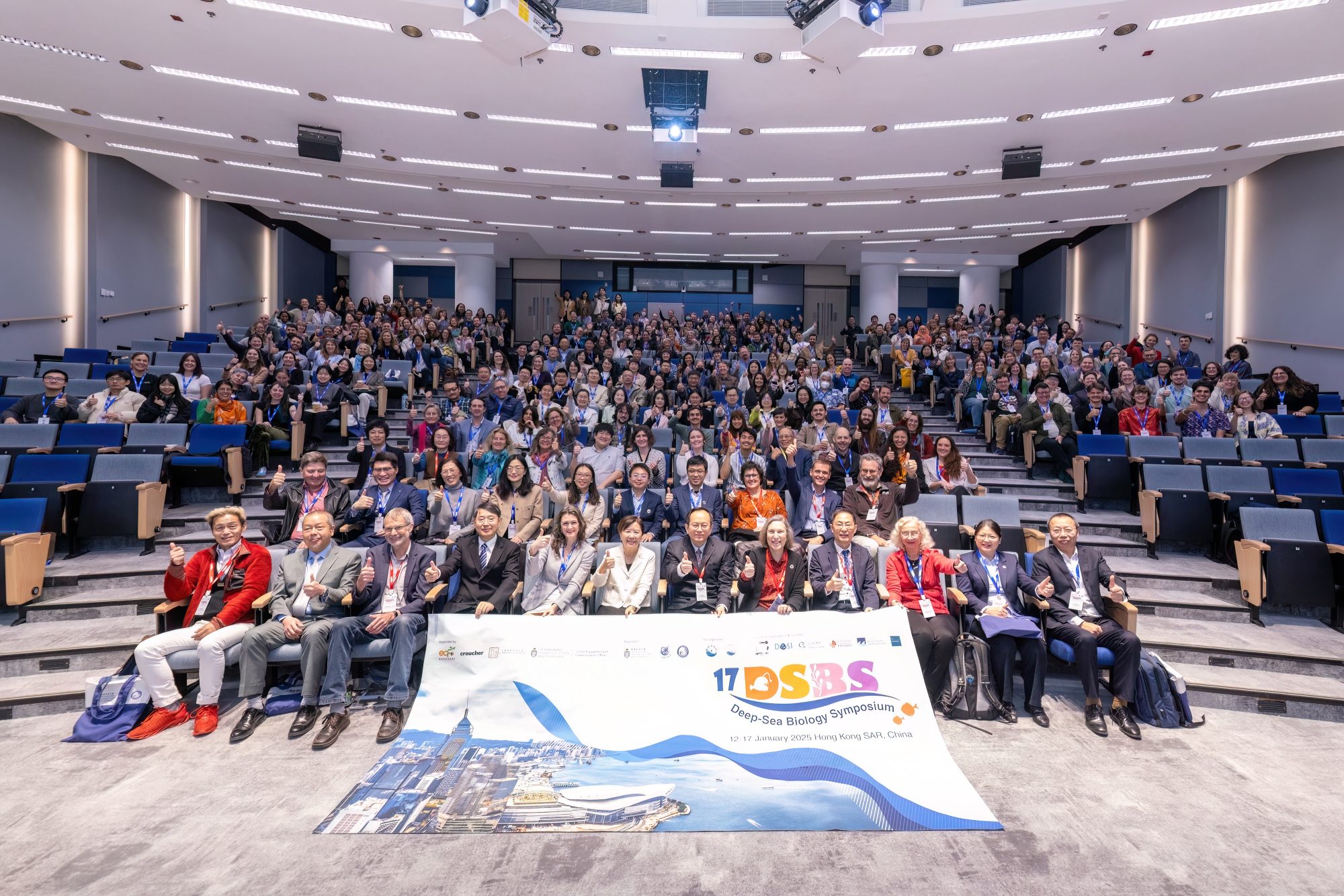

January 2025, the global deep sea scientific community converged at the 17th Deep Sea Biology Symposium (17DSBS).
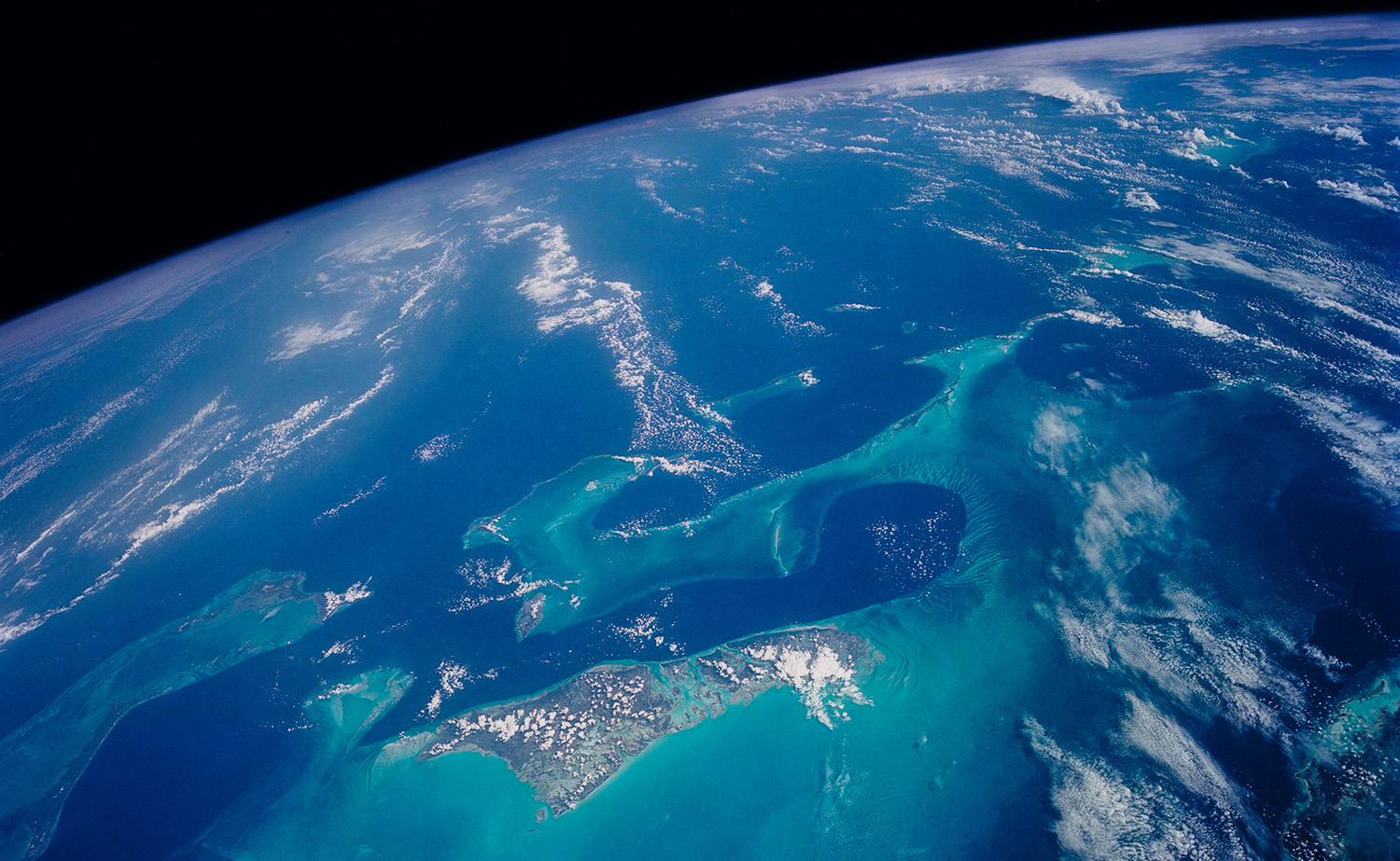
Considering Professor Cox’s clarion call, a strong case could be made for why Hong Kong was THE place to be in the Universe last week.
Life has been evolving in the ocean for nearly 4 billion years, 3 times longer than on land. Of the known phyla on Earth, 33 are found in the ocean, 12 are on land. Whilst there’s three times more species on Earth (largely thanks to insects), there’s three times more diversity in the ocean.
From high temperatures to low oxygen, from high pressure to low PH, ocean life is the story of super-powers – animals that have evolved to thrive in the most extreme environments on our planet. Their diversity and complexity make all life on Earth possible – the source of air, food, climate regulation, and even cures for disease.
Whilst there's three times more species on Earth, there’s three times more diversity in the ocean.
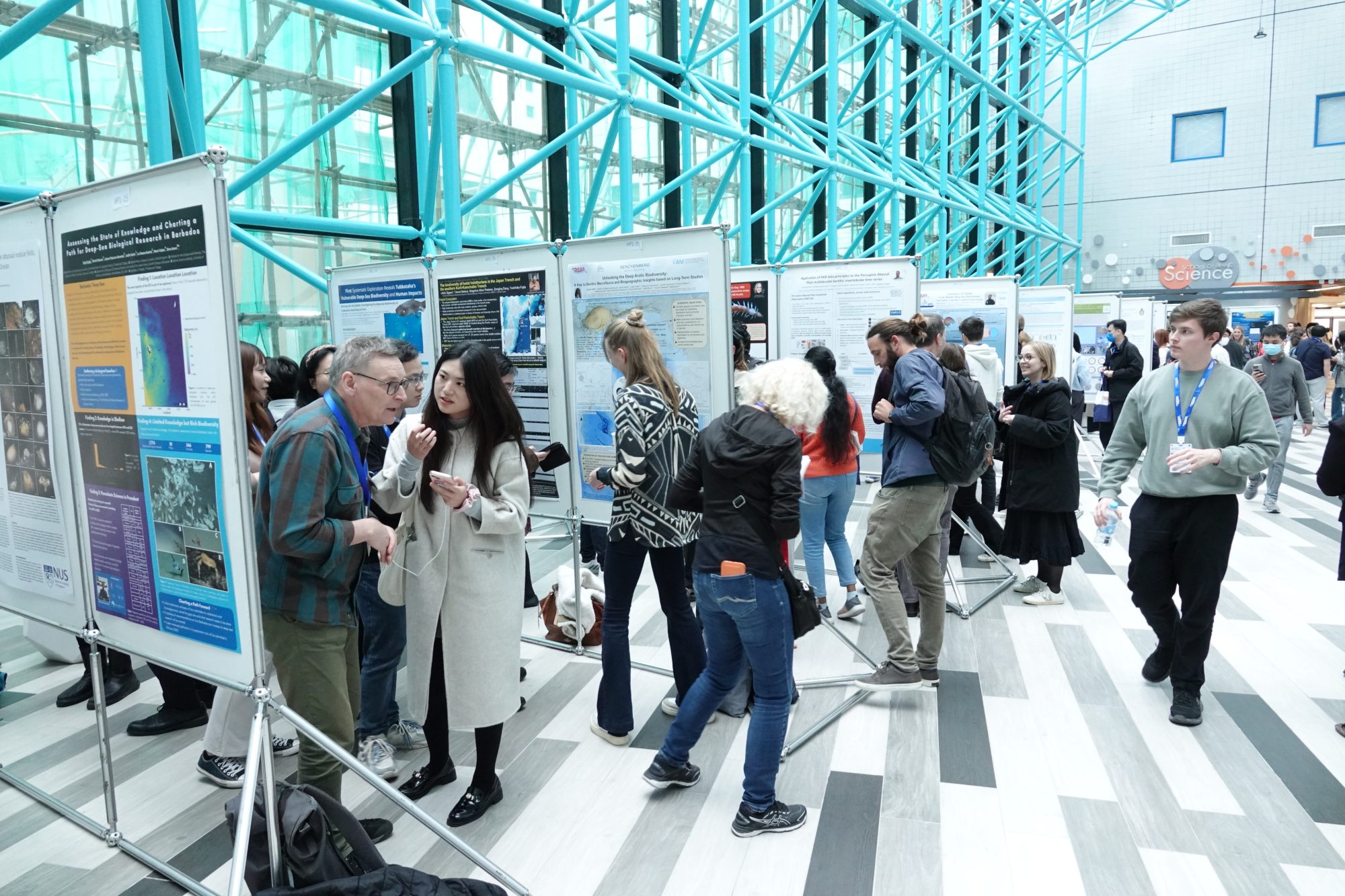
So, the gathering of deep-sea biologists is a big deal with universal significance and yet occurs only every three years. This January, the global deep sea scientific community converged at the 17th Deep Sea Biology Symposium (17DSBS). Hosted for the first time in Asia, the 17DSBS took place from 12–17 January 2025 at the Hong Kong University of Science and Technology (HKUST).
Set against the vibrant backdrop of Hong Kong – at the heart of a region that has seen significant developments in deep sea ocean research – the symposium served as a platform for collaboration, innovation, and discovery in deep-sea science. In total there were 12 scientific sessions that highlighted initiatives that address the unique challenges of the deep sea happening at the Symposium.
Extraordinary discoveries – as one would imagine – were shared. The first evolutionary biography of a marine species – the brittle stars – revealed a 240 million year voyage across our planet’s ocean that mirrors the journeys of seabirds. The discovery of ‘dark oxygen’ is awakening a new environmental impact caused by deep-sea mining whilst also providing clues to how life on Earth began – and even whether life can be sustained on other planets in and outside our solar system. Just two of dozens…
The 17DSBS featured thought-provoking talks from leading experts, including the Nekton Science & Knowledge Exchange Programme Manager Sheena Talma:
“My presentation focused on democratising the deep sea. Simply put, how do we ensure that once large oceanic vessels leave, countries without these expensive seagoing vessels can continue their research. I used Seychelles as a case study to showcase how we have built our research agenda from one expedition to the next and how we have also been able to find grants to develop cost effective technology.”
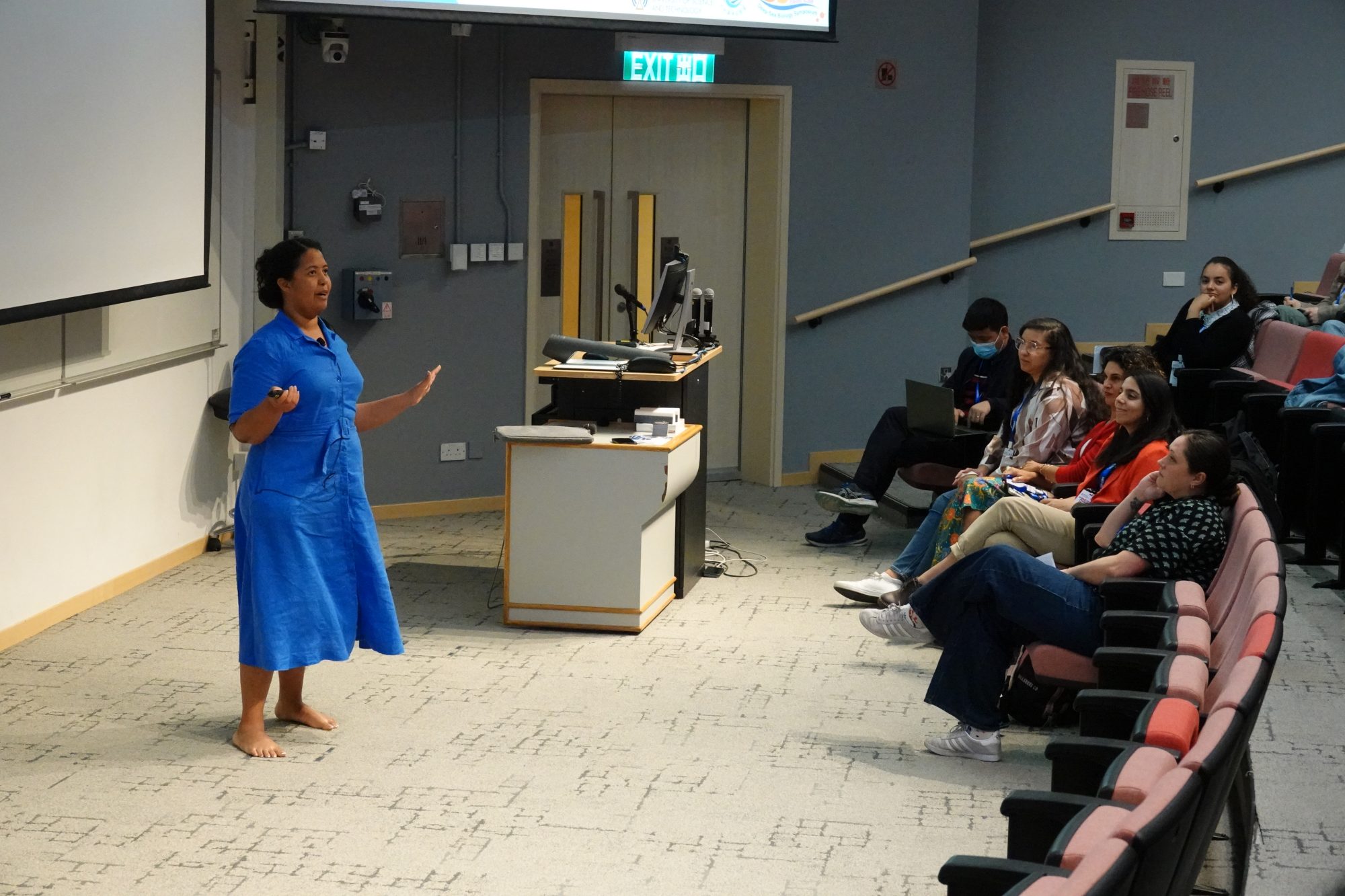
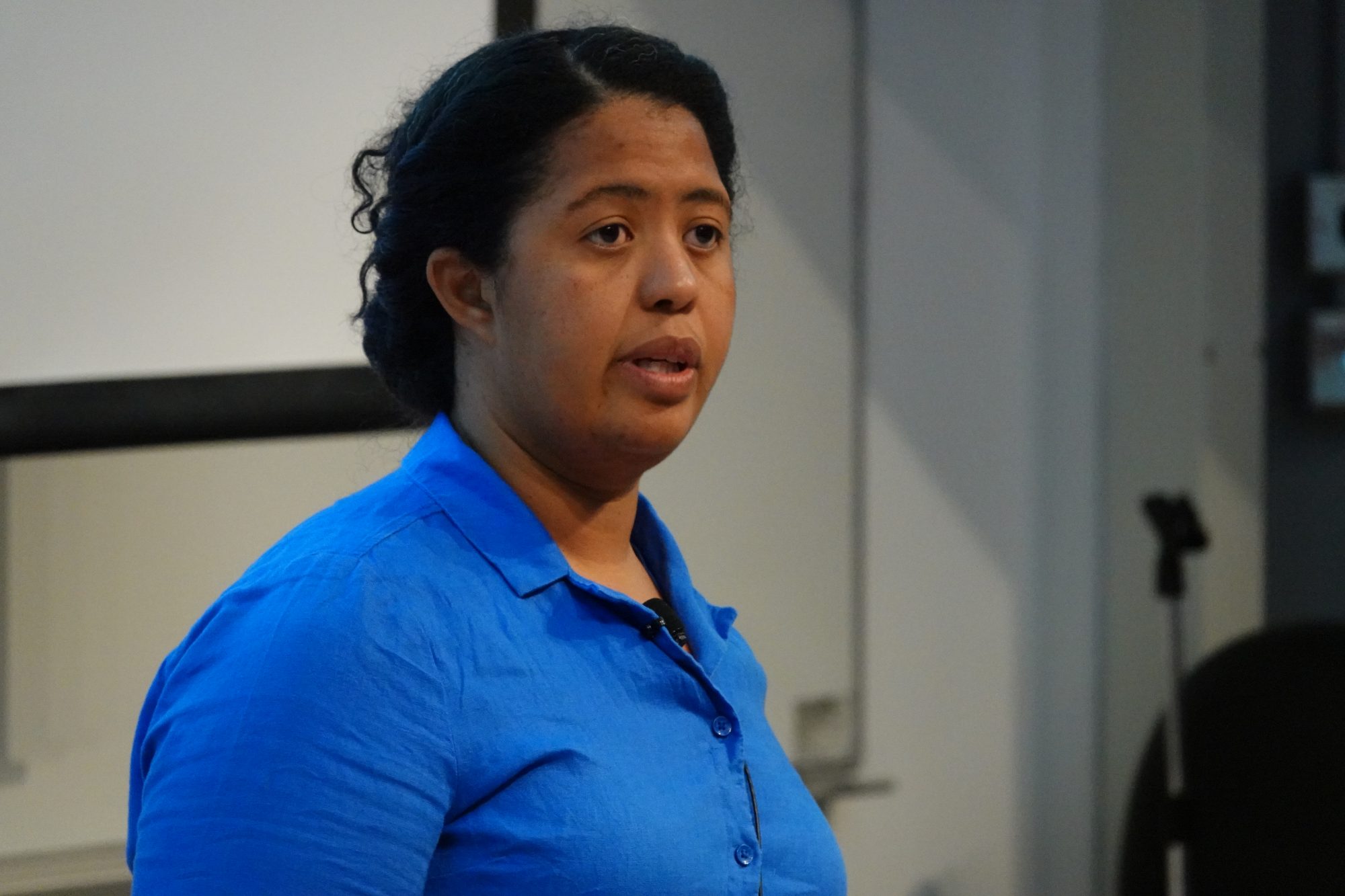

There has never been a better, nor more important time to be a marine biologist. Whilst we now have the technology to discover more of the ocean in the next 10 years than we have in the last 10,000, the ocean, thanks to us humans, is also changing faster than it has for hundreds of millions of years. Ocean life faces existential threats that are undermining their ability to support all life on Earth.
The list of threats should cause world leaders to lose sleep. Pick a topic to set off insomnia – ocean warming, biodiversity and habitat loss, altered food webs, ocean acidification, chemical and plastic pollution, deep sea mining or even meridional overturning circulation. Or settle into the waking nightmare that is deep sea trawling – where 5 million km2 of seabed is still being clear-cut every year – four times the size of South Africa. We have the industrial capacity to destroy our planet and we annihilate undersea Galapagoses before they have even been discovered, often funded by government subsidiaries, and by extension, the taxes we pay.
That only 350 deep sea biologists from 40 nations were able to raise enough resources and good will to meet in Hong Kong at this time of planetary crisis, should set off the alarm bells across the Universe.
There has never been a better, nor more important time to be a marine biologist.
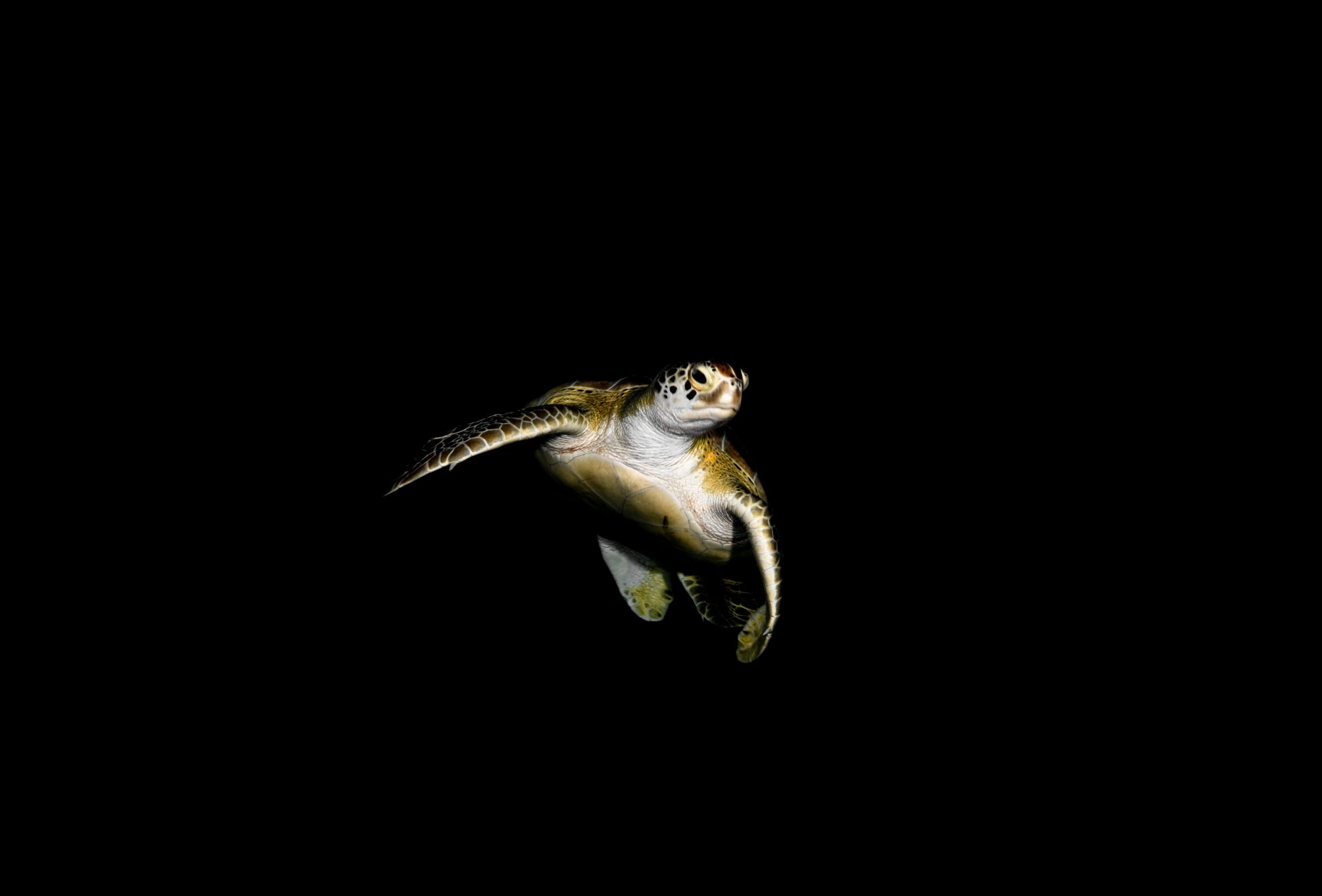
The Stewards of Earth do not currently value ocean life, and its essential role in supporting all life on Earth. Ocean life is barely valued for scientific knowledge, ecosystem services, environmental stability, societal well-being, sustainable commercial activities, and cultural significance.
The voices of deep-sea biologists need to be heard. If we do not value ocean life a lot more and very quickly, the future of all life on Earth is going to get a lot harder. Of the complexities and challenges we face currently, investing in marine biology is surely one of the simplest of fixes.
Perhaps one ray of light is that those charged with advancing our fundamental knowledge of ocean life took heed of Dr Michelle Taylor, President of the Society’s advice at the start of the gathering:
In 3 years time, the Society reconvenes in Bergen, Norway. Professor Cox will be invited.
If we do not value ocean life a lot more and very quickly, the future of all life on Earth is going to get a lot harder.
With special thanks to the Deep Sea Biology Society, team and President Dr Michelle Taylor, The Hong Kong University of Science & Technology (HKUST) and Dr Pei-Yuan Qian for generously hosting the Symposium, Dr Tim O’Hara for the brittle stars, Dr Andrew Sweetman for dark oxygen, Dr Lisa Levin for the animal superpowers, Dr Roberto Danavaro for the nightmare of seabed trawling, Dr Malcolm Clark for conservation challenges, and all the incredible scientists who shared their knowledge and discoveries, and gathered with little sleep at DSBS17.